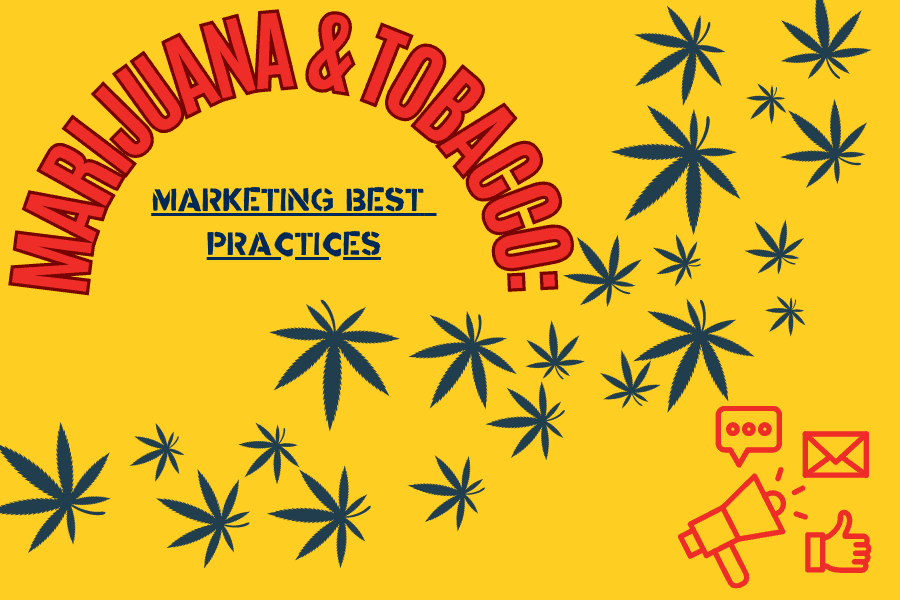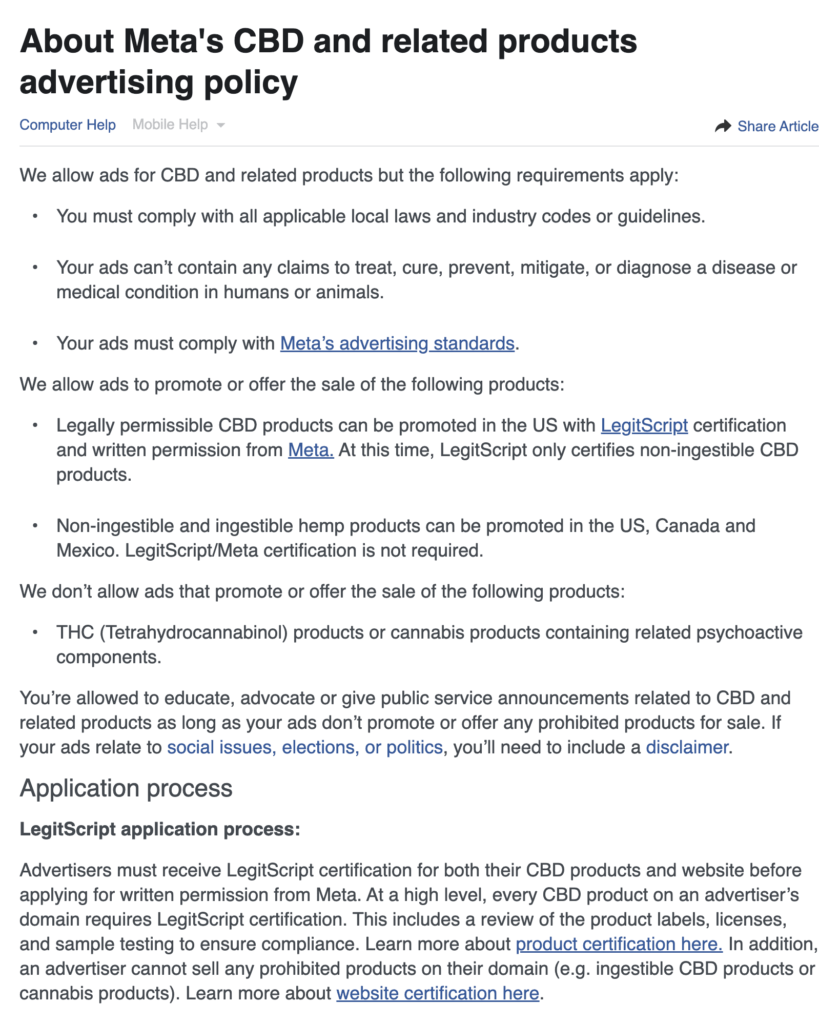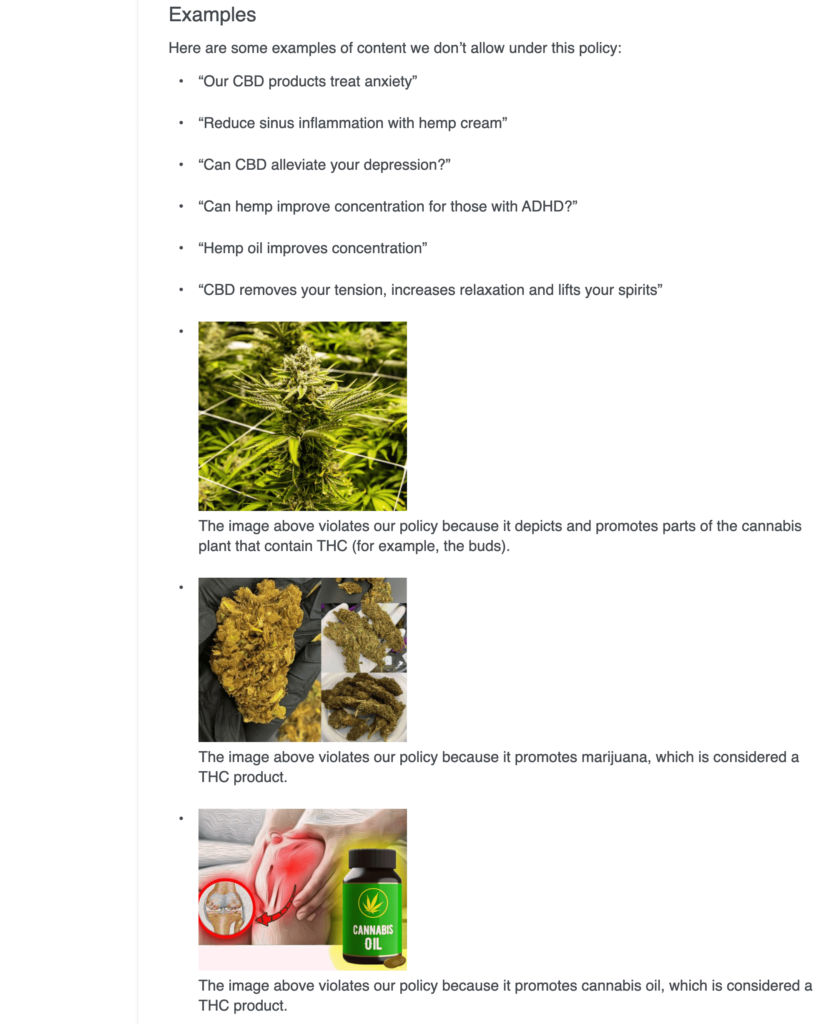Marijuana and Tobacco: Marketing Best Practices
Marijuana and Tobacco: Marketing Best Practices
BY ATOMIC | JUL 25, 2023

Marijuana and tobacco are two widely consumed substances that have significant implications for public health and legal regulations. As the marketing landscape evolves, it becomes crucial for businesses in these industries to understand and implement responsible and ethical marketing practices. It is also important to know what you can’t do when marketing these and related products.
Marijuana and Tobacco: Marketing Best Practices
Marketing plays an important role. It makes customers aware of the different product offerings that different companies offer. However, some forms of marketing can raise ethical considerations. A certain issue is how marijuana and tobacco marketing influence the public’s point of view on these debatable products. Consequently, companies in this market have had to significantly modify their marketing methods. So, let us find out the relationship advertisements and ethics hold concerning marijuana and tobacco.
The Changing Landscape of Marijuana and Tobacco Advertising
Throughout history, advertising has undergone impressive changes, from unlimited tobacco promotions to the rising fad of marijuana marketing. These changes reflect societal landscapes in addition to developments in marketing techniques.

Tobacco advertisements used to be everywhere. They were influential and found in different formats, such as magazines or TV shows. These outlets glamorized smoking through powerful techniques like celebrity endorsements. It was so unbelievable that even doctors recommended smoking before they noticed something similar across all smokers.
Due to its continued use over the years, more and more people have become aware of the dangers associated with smoking. This is partly a result of the advocacy campaigns against it. On another note, legalization trends have opened up new avenues under lawmaking guidelines. These products are only authorized in regions so far into their industry ranges, slowly but steadily.
Advertising products derived from marijuana is fairly new, and holds less regulation. Currently, products derived from marijuana are less regulated when it comes to advertising. In the case of Facebook, CBD advertising is allowed under certain restrictions. Although it is believed that CBD products can help relieve stress, you can’t make that claim on Facebook. This policy is constantly changing so it is important to stay up-to-date to avoid being banned from Facebook advertising.
The Role of Public Policy and Regulation in Ethical Advertising
Gone are the days of seeing a cigarette commercial on TV. Now, commercials are aimed towards stopping smoking and even showing the deadly side effects of it. Tobacco advertising is so highly regulated that you can’t air a commercial promoting cigarettes or vapes.
As far as we have looked, the policy for ethical advertising calls for action. Effective public policy is crucial. It ensures ethical advertising practices in the tobacco and marijuana industries. This helps prioritize the health of the public while still allowing businesses to promote their products. Both ways would continue to flourish regardless of any compromises.
In years past, advertisers faced less restraint in advocating tobacco sales. But an increasing awareness of harmful effects led to regional crackdowns. Similarly, suitable policies governing advertising link directly to marijuana’s development amid legalization trends.
The Ethical Implications of Marijuana and Tobacco Advertising
In the realm of marijuana and tobacco, ads exert a massive impact on consumer behavior. This influence is particularly concerning since these products pose risks to one’s health.
Advertising campaigns tied to tobacco and marijuana often glamorize these products. But are they really healthy and as good as they say? This leads to ethical dilemmas. The next steps in advertising should be examined with careful consideration.
Notably, susceptible demographics are at higher risk of being subjected to these shady marketing strategies. This is especially true among younger people. As you may already know, such demographics are susceptible to ideas. They will always try any new adventure coming their way in complete disregard of the imminent danger, potentially resulting in irresponsible activities. Further, it creates a contentious scenario rooted in promoting brands while burdening possible societal costs.

Advertising Regulations and Industry Practices
In light of the ethical concerns surrounding marijuana and tobacco advertising, it becomes crucial to consider the existing regulations that govern these industries. These regulations play a significant role in shaping the strategies employed by advertising agencies, fostering a sense of responsibility within the industry. Previous decades saw a spike in under-age smoking and it was ultimatly blamed on the advertisers. The same thing happened when candy-flavored vapes became popular. The flavors targeted younger groups.
To get you up to speed, the global status of tobacco and marijuana advertising laws provides insights into the efforts made to control marijuana and tobacco promotion. Article 13 of the WHO FCTC recognizes the importance of Tobacco Advertising and Promotion Bans (TAPS) in effective tobacco control.
This includes provisions for banning cross-border ads as part of a more expansive approach. However, monitoring and enforcing these bans across borders poses ongoing challenges. For instance, in the EU, the regulation requires all member countries to put restrictions on cross-border tobacco advertising.
According to the 2018 Party Reports to the WHO FCTC, an estimated 18% of the world is protected by the “highest level” of TAPS restrictions. These bans include various forms of advertising.
Facebook gives a great list of things you can’t say when posting or advertising about products derived from marijuana.
Frequently Asked Questions
Why is it Ethically Challenging to Advertise Marijuana and Tobacco?
For starters, we all know the harmful effects of marijuana and tobacco. Marketing strategies have proven to be very effective. They tend to alter consumer behavior in massive ways. With this in mind, think of the susceptible demographics. Think of young people. Do you want tobacco and marijuana all over the place, altering your buying decisions? This explains why it is ethically challenging to advertise these products.
How Are Advertising Regulations Managing These Ethical Dilemmas?
Advertising regulations attempt to manage these ethical issues by imposing restrictions. These restrictions ensure that profit-hungry corporations do not brainwash susceptible generations with ideas of how good their products are. These regulations ensure that the ads target the intended users and not just anybody.
What Role Do Advertising Agencies Play in Ethical Advertising?
Advertising agencies have a significant responsibility to ensure ethical advertising. This includes adhering to regulations, understanding the societal implications of their work, and prioritizing the welfare of the public over profits.
What strategies do companies apply to encourage people to use tobacco?
There are several techniques. First, the use of humor in advertising tobacco and marijuana products seems to work. Such humor attracts people to use these products. Another effective technique is to make use of influencers. In such a world as we live in today, what can’t influencers achieve? The world has seen companies use influencers to make people do certain things that they would naturally not even think of.
Conclusion
Marijuana and tobacco advertising is complex. Numerous factors affect it. Society and regulators have imposed restrictions to ensure the best for their residents. What is important to keep in mind is that advertising these products is not outright evil. Thousands rely on these products to put food on the table.
The responsibility of regulating these ads lies not only with regulatory bodies but also with advertising agencies. Most importantly, the largest responsibility lies with the consumers themselves. After all, aren’t these ethical considerations in place to protect them?

